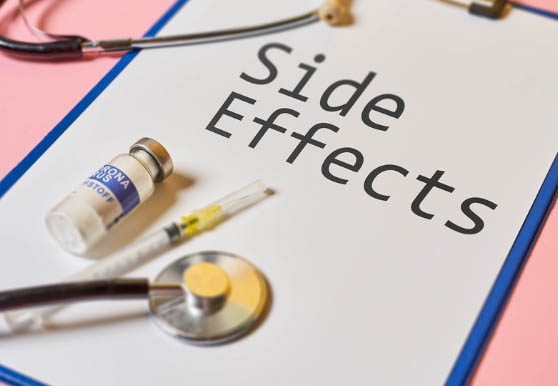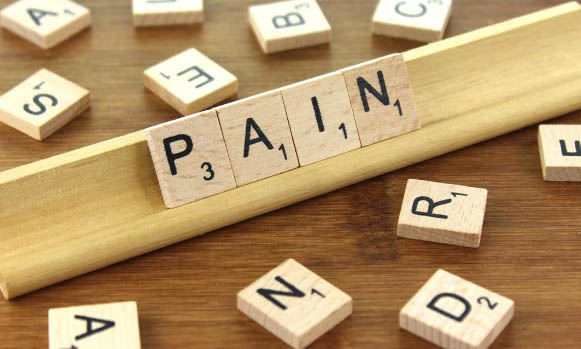The problem of patients not taking their medicine as prescribed by their doctor is a big one. It is actually quite common, and something that often affects patients suffering from chronic illness. This is a problem that can be very difficult for doctors and other healthcare professionals to understand is happening. But why do patients stop taking their meds? We look at the causes of medication nonadherence, and what could happen if someone takes this course of action.
Contents
What are the Side Effects If You Suddenly Stop Taking Your Meds?
The exact side effects will depend largely on the medications you are taking, but let’s look at some general problems that can happen:
- Increasing symptoms. The damage done by the illness can increase without meds to stop them.
- Reoccurring illness. Some meds stop illnesses from returning after you’ve previously had them.
- More doctor visits. If you suddenly stop taking your meds, you’re going to need to see medical professionals more often.
There can also be problems with suddenly stopping certain types of medications. So even if you want to stop taking the pills, there are many reasons to avoid this. Check with your doctor if you really want to stop treatment, as there might be other options.
Let’s take a look at some of the reasons why people stop taking their meds.
Medication Cost
Even if a patient has great insurance, there can still be out-of-pocket costs that put a strain on people’s finances. And for people without adequate insurance, the costs of getting sick can be a terrible strain on their lives, relationships, and finances.
It is understandable that many people simply cannot afford to fill their prescriptions with the high cost of many new treatments. This leads to people deciding not to fill their prescriptions, either some time into their treatment or even right from the start.
Another thing that some patients do to cut back their healthcare expenses, is to ration their meds. The patient may feel that this is good enough and all that they can do in their financial situation. Unfortunately though, taking medication not in accordance with the doctor’s prescription isn’t advisable.
 Taking the medication at a slower pace than medical instructions could mean the patient’s health gets much worse. Partly treating the condition could reduce the effectiveness of the medication and make more intense medical intervention necessary.
Taking the medication at a slower pace than medical instructions could mean the patient’s health gets much worse. Partly treating the condition could reduce the effectiveness of the medication and make more intense medical intervention necessary.
Many Americans report they have gone online to find cheaper medical supplies. This isn’t surprising given the disparity between the cost of pills in the United States and other countries.
However, choosing to go online to buy your meds isn’t without its potential problems. Many online pharmacies exist to rip off their customers or sell low-quality or counterfeit drugs. The scam drugstores are often operated by criminal gangs that like the low-risk profits when compared to narcotics.
Fortunately, there are some things you could do to avoid falling victim to one of these scams. Simply by checking online pharmacies reviews 2022, you can avoid many of the scam pharmacies that will take your money and sell you fake meds.
Fear of Side Effects
Some patients choose to not take their prescriptions due to fear. They may have had side effects when taking this medication previously or heard about someone else who did.
 Perhaps they have read the warnings on the packaging or online, stating potential side effects that can occur to some patients. The reality may actually be that there is a very low chance of these side effects occurring, but fear is a very powerful motivator and can put people off.
Perhaps they have read the warnings on the packaging or online, stating potential side effects that can occur to some patients. The reality may actually be that there is a very low chance of these side effects occurring, but fear is a very powerful motivator and can put people off.
They could have noticed side effects in someone else taking the medication or similar treatment and attributed it to the pills themselves. It could be the case that these side effects were actually caused by something else, possibly the illness itself.
Lack of Understanding
If the doctor doesn’t explain the situation in a way that the patient can understand, the potential downsides of not adhering to their medication could happen. This could be the fault of the medical professional or the patient themselves. Regardless of the reason, the consequences will probably involve the patients suffering more.
This is particularly a problem with chronic illnesses where the patient needs to take medication every day. While the meds might be preventing something severe from happening to the patient if they don’t really understand what the consequences are they will not take their medical regime seriously.
The patient can believe they don’t really need to take their medication anymore if they feel fine. But if this is just a misunderstanding on their part and the pills are preventative, not continuing with the treatment is going to be a real problem.
But I Feel Fine
If the patient doesn’t understand the nature of their treatment plan but believes the pills have made them better and removed their problem, they might drop their medical regime.
It is easy to think that a lack of symptoms means that you are no longer suffering from the illness that you were taking the meds for. And if you think you have been successfully treated, why would you continue with your course of medication?
Once again, this is essentially a lack of communication. The patient needs to understand when they can stop taking their meds, and if this isn’t clear the medical professional hasn’t really done their job properly.
Too Many Prescriptions
 If the patient has been prescribed a lot of medicines they might forget about one tablet, get mixed up between treatments, or not really believe that all of their tablets are necessary. Either way, it’s going to result in them not adhering to their prescription requirements with the consequences to their health.
If the patient has been prescribed a lot of medicines they might forget about one tablet, get mixed up between treatments, or not really believe that all of their tablets are necessary. Either way, it’s going to result in them not adhering to their prescription requirements with the consequences to their health.
Doctors can do some things to help these situations. They can better schedule the medicines so they can be taken all at the same time during the day. They could also prescribe pills that release their active ingredient more gradually so that the tablets need to be taken less often.
Lack of Trust
If the patient is aware of how the pharmaceutical industry sometimes works, they might be unwilling to trust the meds they’re prescribed. On top of this, they might not trust the word of their doctor either. They will have heard stories about doctors getting gifts from big pharma reps to prescribe their drugs.
These issues do not make the medical profession look very good. It also increases the chances of the patient might not be willing to believe what the doctor or the drug company says.
Whether there is any real justification for these beliefs or not, the consequences for the patient are, of course, not good.
Depression
A patient that is suffering from depression might not stick to their meds. It is likely that someone who is deep in a depressive thought pattern isn’t going to see the point in taking their pills.
To help the situation, healthcare professionals could empathize with the patient and talk about issues they could be having. If the patient is able to relate to this, it can be explained that this is a common problem that many people face. This might help the situation and enable them to once again begin their medical treatment.
Addiction Fears
 Thanks to the well-publicized opioid crisis, patients that are prescribed some types of medications could be fearful they will become addicted to them.
Thanks to the well-publicized opioid crisis, patients that are prescribed some types of medications could be fearful they will become addicted to them.
Even if the pills prescribed by the doctor and not addictive some people will fear becoming dependent on the medications. A lot of people do not like the idea of having to rely on pills just to live a normal life, so they could quit taking their meds.
Combination of Reasons
While all of these issues are common causes for people to fail to adhere to their medicine, there can be multiple reasons happening at the same time. For example, costs could be a concern and it could drive them to want to believe they are feeling better than they really are.
If a patient has a lot of pills prescribed to them, there are likely to be a lot of copays. The costs of the copays will push the person to want to reduce the number of treatments they are taking so that they can reduce their expenses.
Final Thoughts
The consequences of failing to stick to the drug regime created by a medical professional is normally going to be serious. Even if you aren’t sure you really need to continue with your prescription, contact your doctor, and don’t just stop taking the pills.
If you suddenly stop, more medical intervention could be required. If you are finding buying meds a real problem, there are cheaper sources of medicine online. But to avoid scam websites you should really check online pharmacies reviews 2022 before ordering.
If you suspect someone in your family or a friend, isn’t sticking to their meds, the reason is likely to be one of the issues above. There could be many things you can do to help them follow their treatment plan and get them back on track.




